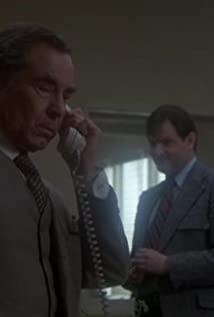The subject matter of this film can be said to have distinct characteristics of the times. The 1960s was a turbulent era in the West. With the rapid development of society and economy, people began to doubt the rationality of the old order and tradition that maintained the operation of capitalist society. Many people even rebelled in various ways. All kinds of social thoughts against the system are surging. In the United States, the black liberation movement, the women's liberation movement, the anti-Vietnam War movement, and even sexual liberation, homosexuality, hippies... Wave after wave of thoughts violently impacted the old order, and people's ideas were replaced by the turbulence. It can be said that anti-system was the main theme of literary and artistic works in the 1960s, especially in the middle and late 1960s. This film is a representative work of this anti-establishment wave.
The two middle-class families of Braddock and Robinson can be said to be symbols of the old order. The Braddocks had everything in life for their son, as they and their parents did. Their children grew up under this kind of education, and as a result, they lacked the vitality of life and were like walking dead. The Robinsons represent the other side of the old order: looking happy, the fig leaf is uncovered, but underneath it hides corruption and depravity. The Robinsons have been separated for many years, and their sexual demands are resolved by extramarital affairs. Mrs. Robinson's sophistication and natural attitude in seducing Ben showed that she was already a master of love. She is sophisticated, likes to eat chicken, and plays with her hands. Although her strategy frequently failed due to her rebelliousness and resoluteness, she was indeed wise and scheming. The director did not give her an independent name, only called Mrs. Robinson, obviously not focusing on the character's personality, but taking her as a family code. The image of her is intended to reveal the hypocrisy and decadence of the American middle-class family relations, way of life and even the entire old order. In contrast, Ben can be seen as an image of a new generation that was conceived in the old order, but was at ease dissatisfied with the irrationality of the old order and dared to rebel. Ben was born out of the old order and was influenced by it in confusion, but he disapproved of this depraved way of life from the very beginning. Ellen's pure love prompts Ben to wake up, and he is determined to get rid of his previous corrupt life. When confronted by the old order, he decided to take the initiative to confess his guilt and repentance to Ellen, and would rather lose his new life than compromise with the old order. His persevering pursuit of Ellen is actually a fight with Mrs. Robinson, which means a rebellion against the old order. He finally dared to rob a relative and succeeded in the end, which actually symbolized the victory of the rebellious spirit of the new generation. After the film was released, it was very popular among young audiences, and the film critics also gave it a high evaluation. This sensational effect confirmed that the director of the film had a very accurate grasp of the thoughts of the young generation at that time. The film speaks to their hearts and arouses their strong emotional resonance.
In addition to this zeitgeist factor, another reason for the film's sensation back then was the bold breakthrough in its subject matter. Before the mid-1960s, American mainstream films were mostly reserved in terms of sex and violence (which was significantly outdated than Western European films of the same period). With the impact of social ideology, these two forbidden areas were broken almost simultaneously in 1967. The violent relapse is "Bonnie and Clyde", and the sex-themed relapse is this film (only the subject matter is directly involved in sex, and the expression is still more subtle, and there is no frontal nudity scene in the whole film).
The film has a strong sense of social criticism, but it is not a stern lecture. The director uses a light comedy style to ridicule and criticize the ugly phenomenon of society. As soon as the film started, the director used exaggerated methods to show that the guests praised this academic success, fully revealing the hypocrisy of the middle class. Another example is that in the famous temptation scene, Mrs. Robinson's depravity is not expressed in the form of vulgar debauchery. She always seduces Ben with a graceful and decent middle-class social demeanor, suave without losing her demeanor. This is in stark contrast to Ben's flustered, bewildered embarrassment. Ben opened a room in a hotel, the receptionist asked him whether he wanted a single or a double room as usual, he was guilty of asking for a single room, and then he did not dare to call Mrs. Robinson, but called to tell his mistress who was close at hand that the receptionist suspected him. . Mrs. Robinson told him to go up first, and she came later. Ben's innocence and Mrs. Robinson's sophistication are revealed in joking about the filth of cheating. There are countless such humorous scenes in the film, and of course the climax of the whole film is quite comedic.
In this film, Nichols's directing skills are also highly appreciated. For example, the scene where Ben is snorkeling in the wetsuit given by his father is very creative. Father suddenly opened the side door, and Ben appeared in front of the guests in front of the guests, with duck webs on his feet, an oxygen cylinder on his back, and a diving suit. Immediately following the subjective shot of the conversion cost of photography, the viewer and Ben look out through the diving mask, and everything is slightly distorted. Father's distorted face continuously waved his hand to guide the camera, the camera staggered forward, and Ben's heavy breathing sounded at the same time. Guided by my father, this shot jumps into the swimming pool and sways awkwardly underwater, looking up to the outside world which is rather comical. Here, Nichols ingeniously makes the audience and Ben look at the distorted world from the same perspective, which not only gives the audience a strange freshness, but also makes them get closer to Ben and understand Ben's inner world: The deep primordial water did not know the depth, and was full of fear and worry about the outside world. In addition, Nichols's approach has another meaning: the deformed world is the true portrayal of society. Driven by profit and desire, people's souls are distorted. On the surface, people wear false masks. To see through their souls, to see their distorted mentality. Another example is the seduction scene in the bedroom. Ben put down his wallet and glanced at Ellen's portrait. The glass surface of the frame faintly reflected the naked figure of Mrs. Robinson who appeared after the door was pushed open. Shadow covered. This is really Nichols' magic stroke, which is smooth and natural, in line with the plot, and has deep meaning, which is memorable. Ben and Mrs. Robinson had only two things in their life: swimming and cheating. Nichols subtly hints at this in a montage: Ben climbs out of the pool, puts on his shirt, and goes inside; the camera cuts, and Ben lays on the bed as he goes inside, and Mrs. Robinson, wearing only a bra, unties him. Shirt; Ben got up and closed the door, parents in the restaurant outside looked at Ben while they were eating... Ben jumped into the swimming pool, swam to the rubber bed and jumped on top of Mrs. Robinson; someone spoke to him, he looked back: father backlighting Looking at him, the sunshine behind him made him unable to open his eyes (the sunshine hides his father's prestige), and his father solemnly warned him that he should consider doing something. There are many more scenes in the film that are both innovative and allegorical.
The performances of the two protagonists are also admirable. The young Hoffman shot to fame by starring in the film, and he convincingly interprets Ben's growth from infancy to maturity. His distinctive honesty and cuteness are prominently displayed in this film. For example, in the temptation scene, Mrs. Robinson had only taken off her bra and petticoat, and Ben was so frightened that she ran home, and Mrs. Robinson was busy and asked him to bring her purse upstairs. Ben was in a dilemma. He wanted to send it up, but he didn't dare to send it into the bathroom. He hesitated to put it on the top steps of the stairs, and finally put it into the bedroom. When he suddenly faced the naked female body and could not escape because the door was blocked, the film showed his terrified eyes in a close-up shot: his eyes rolled down and then he looked up in panic again, after a while I couldn't help but look down again, and when I saw it, I immediately ducked to the top. The up-and-down eye movement subtly expresses the character's fierce ideological struggle at this time, and the naive attitude is really cute. The famous actress Anne Bancroft also has a very good grasp of Mrs. Robinson. Her performance is tepid, not only does not lose the elegance of the middle class, but also reveals a sophistication and cynicism. There is flavor. The performances of the two added a lot of brilliance to the film.
Finally, it is worth mentioning the episodes of this film. Several solo songs are very characteristic of the times and play a great role in rendering the atmosphere. The episodes after the film are also loved by young audiences.
View more about The Graduate reviews











